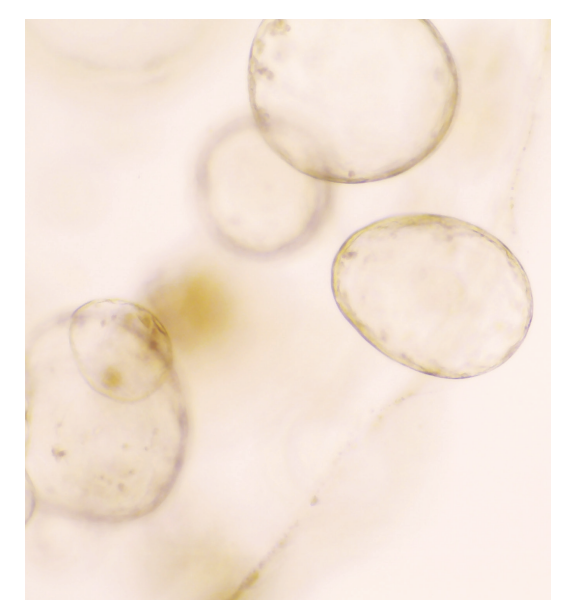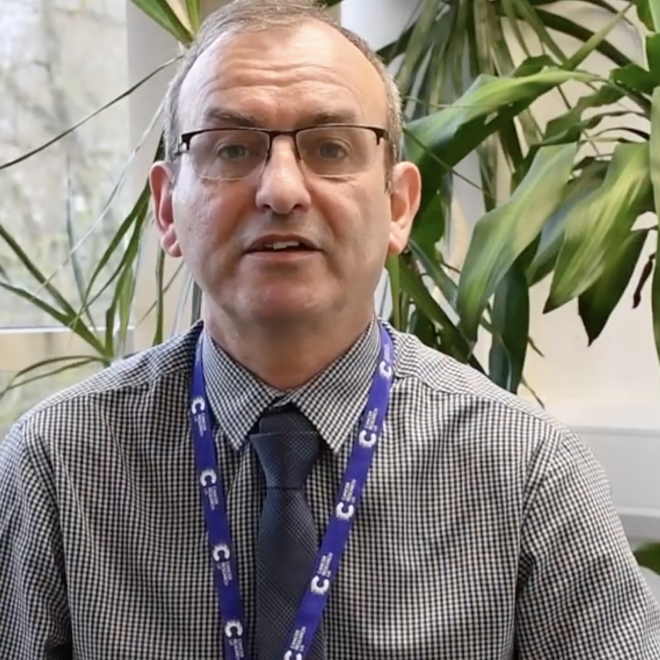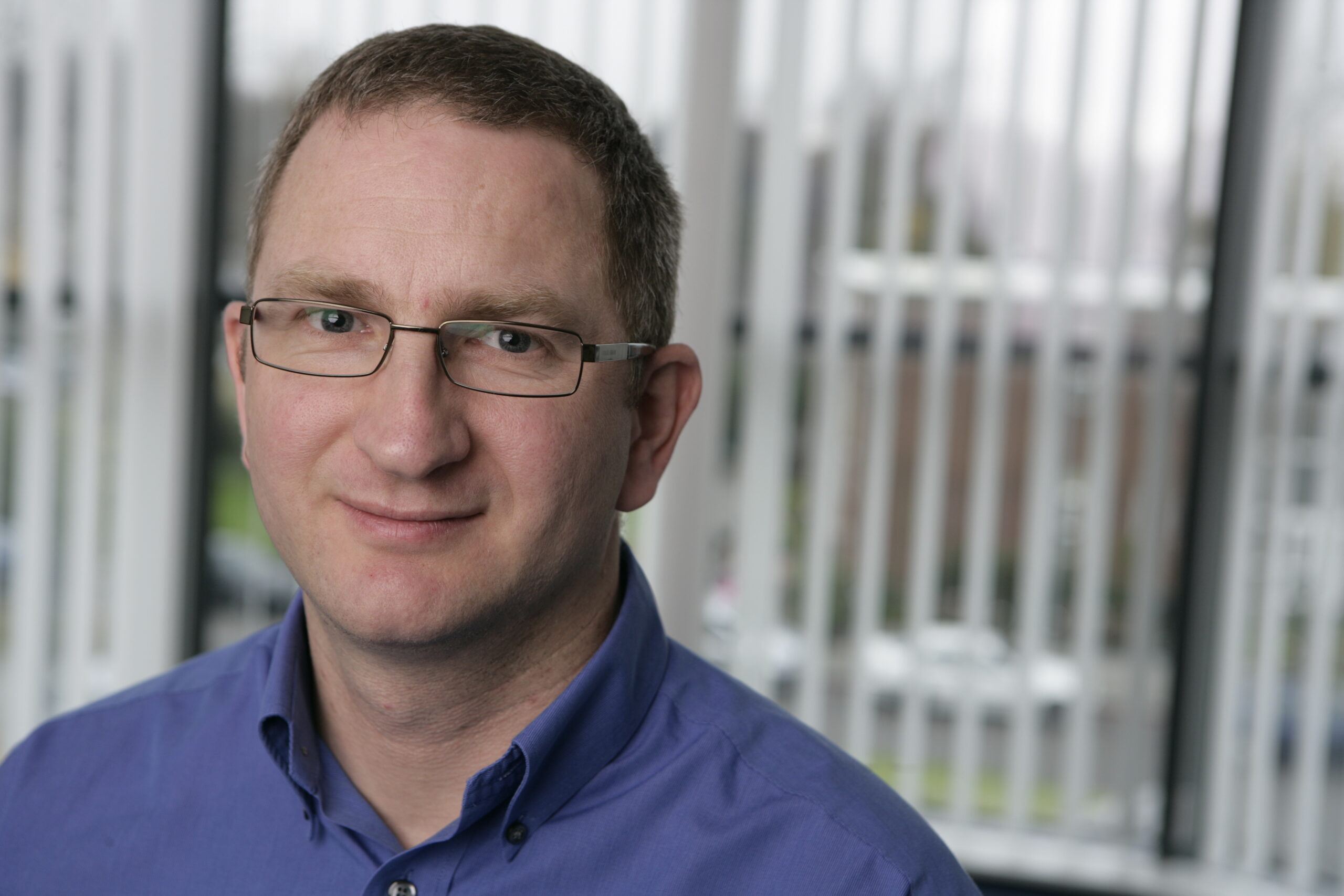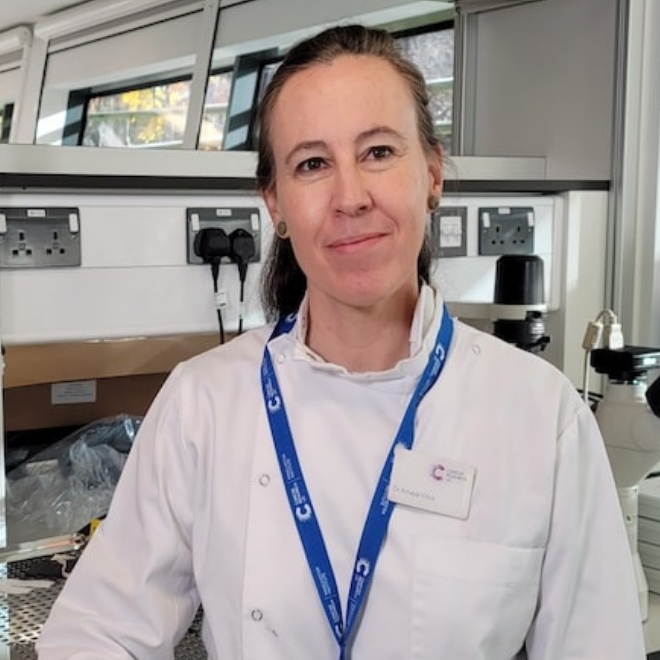Robert Bristow
Translational Oncogenomics Group Leader | Director of the Manchester Cancer Research Centre
Rob is a Senior Group Leader at the CRUK Manchester Institute, where he leads the Translational Oncogenomics group. He has made seminal contributions in prostate cancer genomes and hypoxia. Rob is also Director of the Manchester Cancer Research Centre.
About Professor Rob Bristow
Professor Rob Bristow completed his PhD in Medical Biophysics and Residency in Radiation Oncology at the University of Toronto with post-graduate fellowships at Erasmus University Rotterdam, MD Anderson Cancer Centre and Massachusetts General Hospital. He held positions as Professor and Clinician Scientist in Genito-Urinary cancers at the Princess Margaret Cancer Centre in Toronto during 1999-2017.
Rob joined The University of Manchester with a remit to develop ‘cancer team science’. This strategy pulls together scientists, clinicians and patients to co-create scientific projects and trials. He serves on or chairs several Scientific Advisory Boards for: the Prostate Cancer Foundation (USA), the MOVEMBER Foundation, the American Association for Cancer Research (AACR), the German Cancer Centre, the Tuebingen Comprehensive Cancer Centre, NKI Amsterdam, the Danish Cancer Society, Institut Curie, Institute Gustave Roussy, National University Singapore Cancer Centre and Cancer Research UK (CRUK).
He is twice a Canadian Foundation for Innovation (CFI) awardee. He was made a Canadian Cancer Society Research Scientist in 2004, an ESTRO Honorary Fellow in 2011 and a Fellow of the Academy of Sciences (UK) in 2019. In 2021, he was awarded the Weiss medal (Association for Radiation Research) for distinguished contributions to radiation science.
Groups
Qualifications
- PhD in Medical Biophysics | 1996 | University of Toronto
- Fellow of the Royal College of Physicians in Canada | 1996
- MD | 1992 | University of Toronto
Interests
- DNA damage response and repair in GU cancer
- Hereditary cancers and their genomic evolution
- Hypoxia and the tumour microenvironment
- Biology of Penile Cancer Aggression
Research Projects
Publications
Why I work at CRUK MI
“It’s an exciting environment to drive high-risk, high-reward cancer research that ultimately translates to the clinic.”
Visit Research Group
Almost 50,000 men living in the UK will be diagnosed with prostate cancer (PCa) every year and its incidence is increasing every year. High-risk prostate cancers fail multimodal therapy using radiotherapy and or surgery at least 20% of the time and these failures are responsible for the majority of prostate cancer deaths at 10 years. There is a real need to develop new biomarkers, including ones speaking to aggressive genomic evolution, that give an insight into heterogeneity of outcomes in prostate cancer patients in the setting of both sporadic and hereditary cancers.
In recent years, there has been a growing appreciation of the role of DNA damage response and repair (DDR) genes, such as BRCA2, MSH2 and ATM, in the biology PCa aggression. In depth analyses of the prostate cancer genome have shown that somatic mutations in DNA repair genes are relatively frequent and are more common in incurable, castrate-resistant disease (mCRPC) than in primary cancers. Concordantly, it has been shown that men carrying germline mutations in such genes are at a higher risk of developing prostate cancers that progress to become metastatic.
The presence of hypoxia in PCa is also correlated with a poor prognosis and several factors may contribute to this observation, including resistance to radiotherapy leading to failure of local control, impaired DNA repair, and adaptive responses that promote metastasis. As hypoxia is tightly correlated with levels of genome instability and polyclonality across a range of cancer types, we also wish to understand the interaction between the tumour microenvironment (TME) and the mutator phenotype. DDR and hypoxia signalling pathways are also potential co-factors in determining the aggression of penile cancers which are driven by HPV insertion and genetic programming,
Our lab therefore studies genotype-phenotype interactions using primary or ex vivo human cancer models for multi-omic and functional genomic studies.
Get in touch
https://doi.org/10.1016/j.ccell.2025.04.001
Stromal lipid species dictate melanoma metastasis and tropism
24 April 2025
Institute Authors (5)
Amaya Viros, Duncan Smith, Garry Ashton, Alex Baker, Tim Somervaille
Labs & Facilities
Biological Mass Spectrometry, Histology, Visualisation, Irradiation and Analysis
Research Group
Skin Cancer & Ageing
24 April 2025
https://doi.org/10.1038/s41467-025-58343-y
A human model to deconvolve genotype-phenotype causations in lung squamous cell carcinoma
4 April 2025
Institute Authors (4)
Carlos Lopez-Garcia, Robert Sellers, Sudhakar Sahoo, Caroline Dive
Labs & Facilities
Computational Biology Support
Research Group
Translational Lung Cancer Biology
4 April 2025
https://doi.org/10.1186/s12943-024-02157-x
The PI3K-AKT-mTOR axis persists as a therapeutic dependency in KRASG12D-driven non-small cell lung cancer
12 November 2024
Institute Authors (1)
Amaya Viros
Labs & Facilities
Genome Editing and Mouse Models
Research Group
Skin Cancer & Ageing
12 November 2024
https://doi.org/10.1186/s13045-024-01610-0
The small inhibitor WM-1119 effectively targets KAT6A-rearranged AML, but not KMT2A-rearranged AML, despite shared KAT6 genetic dependency
8 October 2024
Institute Authors (6)
Georges Lacaud, Mathew Sheridan, Michael Lie-a-ling, Liam Clayfield, Jessica Whittle, Jingru Xu
Research Group
Stem Cell Biology
8 October 2024
/wp-content/uploads/2024/11/Annual-Report-2023.pdf
2023 Annual Report
13 September 2024
13 September 2024
https://doi.org/10.1126/science.adh7954
Vitamin D regulates microbiome-dependent cancer immunity
25 April 2024
Institute Authors (3)
Evangelos Giampazolias, Maria Koufaki, Santiago Zelenay
Research Group
Cancer Immunosurveillance
25 April 2024
Our vision for world leading cancer research in the heart of Manchester
We are a leading cancer research institute within The University of Manchester, spanning the whole spectrum of cancer research – from investigating the molecular and cellular basis of cancer, to translational research and the development of therapeutics.
Our collaborations
Bringing together internationally renowned scientists and clinicians
Scientific Advisory Board
Supported by an international Scientific Advisory Board
Careers that have a lasting impact on cancer research and patient care
We are always on the lookout for talented and motivated people to join us. Whether your background is in biological or chemical sciences, mathematics or finance, computer science or logistics, use the links below to see roles across the Institute in our core facilities, operations teams, research groups, and studentships within our exceptional graduate programme.









